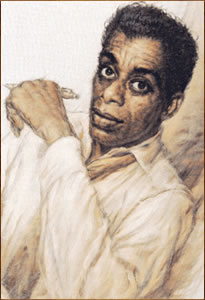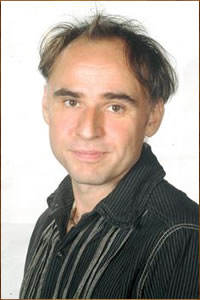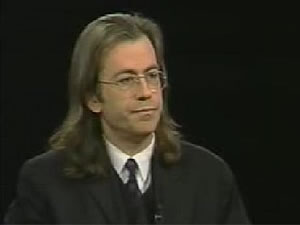|
De Chileense schrijfster Isabel Allende werd geboren in Lima op 2 augustus 1942. Zie ook mijn blog van 2 augustus 2007 en ook mijn blog van 2 augustus 2008 en ook mijn blog van 2 augustus 2009.
Uit: Het eiland onder de zee (Vertaald door Rikkie Degenaar)
Toulouse Valmorain kwam aan in Saint-Domingue in 1770, het jaar dat de Franse dauphin met de Oostenrijkse aartshertogin Marie-Antoinette trouwde. Voor hij naar de kolonie afreisde, toen hij er nog geen idee van had dat het lot hem een loer zou draaien en hij zich uiteindelijk tussen de suikerrietvelden van de Antillen zou begraven, was hij in Versailles nog uitgenodigd op een van de feesten ter ere van de nieuwe dauphine; een veertienjarig, blond meisje dat onverholen zat te gapen vanwege het strenge protocol van het Franse hof.
Dat lag allemaal achter hem. Saint-Domingue was een andere wereld. De jonge Valmorain had niet meer dan een vaag idee van de plek waar zijn vader zo goed en zo kwaad als het ging het geld bijeengaarde om zijn gezin te onderhouden, met de ambitie er een fortuin van te maken. Hij had ergens gelezen dat de Arowakken, de oorspronkelijke indiaanse bewoners, het eiland Haïti hadden genoemd voor de conquistadores de naam in La Española veranderden en met alle inboorlingen afrekenden.
Binnen vijftig jaar was er niet één Arowak over en waren al hun sporen uitgewist: ze bezweken aan Europese ziekten, pleegden zelfmoord of vielen ten slachtoffer aan de slavernij. Het was een ras met een rossige huid en dik zwart haar, van een onbewogen waardigheid en zo zachtaardig dat een Spanjaard er op zijn eentje en met zijn blote handen wel tien tegelijk aankon. Ze leefden in polygame gemeenschappen en bewerkten de aarde met zorg, om haar niet uit te putten: zoete aardappelen, maïs, kalebassen, aardnoten, paprika, aardappelen en maniok.

Isabel Allende (Lima, 2 augustus 1942)
De Amerikaanse schrijver James Baldwin werd op 2 augustus 1924 in Harlem, New York, geboren. Zie ook mijn blog van 2 augustus 2006 en ook mijn blog van 2 augustus 2007 en ook mijn blog van 2 augustus 2008 en ook mijn blog van 2 augustus 2009.
Uit: Sonny's Blues
All I know about music is that not many people ever really hear it. And even then, on the rare occasions when something opens within, and the music enters, what we mainly hear, or hear corroborated, are personal, private, vanishing evocations. But the man who creates the music is hearing something else, is dealing with the roar rising from the void and imposing order on it as it hits the air. What is evoked in him, then, is of another order, more terrible because it has no words, and triumphant, too, for that same reason. And his triumph, when he triumphs, is ours. I just watched Sonny's face. His face was troubled, he was working hard, but he wasn't with it. And I had the feeling that, in a way, everyone on the bandstand was waiting for him, both waiting for him and pushing him along. But as I began to watch Creole, I realized that it was Creole who held them all back. He had them on a short rein. Up there, keeping the beat with his whole body, wailing on the fiddle, with his eyes half closed, he was listening to everything, but he was listening to Sonny. He was having a dialogue with Sonny. He wanted Sonny to leave the shoreline and strike out for the deep water. He was Sonny's witness that deep water and drowning were not the same thing -- he had been there, and he knew. And he wanted Sonny to know. He was waiting for Sonny to do the things on the keys which would let Creole know that Sonny was in the water.
And, while Creole listened, Sonny moved, deep within, exactly like someone in torment. I had never before thought of how awful the relationship must be between the musician and his instrument. He has to fill it, this instrument, with the breath of life, his own. He has to make it do what he wants it to do. And a piano is just a piano. It's made out of so much wood and wires and little hammers and big ones, and ivory. While there's only so much you can do with it, the only way to find this out is to try; to try and make it do everything.

James Baldwin (2 augustus 1924 1 december 1987)
De Hongaarse dichter en schrijver Zoltán Egressy werd geboren in Boedapest op 2 augustus 1967. Zie ook mijn blog van 2 augustus 2008 en ook mijn blog van 2 augustus 2009.
Uit: Sports the Hungarians do badly (Bespreking van Spinach and Chips door Patrick Mullowney)
Here, there is no ensemble cast, just three characters: two line-guards and a referee in the changing room before, during, and after a local soccer match. Here we find the same exaggerated human foibles stupidity, vanity, alcoholism, etc. that were on display in Portugal. These grotesque figures are also depicted in a gently indulgent way. The novelty here is the sports-talk and soccer jargon, which the characters handle naturally and effortlessly, giving us a very unlikely behind-the-scenes view of the game. The fact that we get an intimate peek at the lives of these mostly overlooked (if not mocked and despised) soccer employees gives the play its special appeal. (Egressy wrote another sports play entitled 4 x 100 about a women's relay team. Although seemingly a female version of Spinach and Chips with many similar themes, this play focused instead on the athletes and coaches. It ran for a short time at the Merlin Theatre and prompted critic Andrea Tompa to ask, "Why does Egressy always choose sports that the Hungarians do badly?")
(...)
As for the scenario, Soap and Artist are the two unhappy line guards. Soap is still angry about being demoted from referee. Artist has lost his girlfriend Mariann, who always used to give him spinach and chips before each match. She left him for Laci, the referee for that day's match. Artist deals with the loss by drinking vast quantities of alcohol and writing awful poetry. Since both men, justly or unjustly, blame Laci for their misfortunes, they decide to sabotage the game to get revenge.

Zoltán Egressy (Boedapest, 2 augustus 1967)
De Amerikaanse schrijver en historicus Caleb Carr werd geboren op 2 augustus 1955 in New York. Zie ook mijn blog van 2 augustus 2008. en ook mijn blog van 2 augustus 2009.
Uit: The Alienist
I have to confess I remember almost nothing about this book which I find weird, because I remember loving it when I first read it!
I read this book when it first came out, although its not really my thing. Actually, it is my thing with the whole historical New York setting, which I love and the serial killer plotline which I love even more. I love any book about the psychology of killers (having just finished 2 books in a row on Leopold & Loeb
the theme continues) But it was one of those moments when you look around on the subway and you see EVERYONE reading the same book
and in general, I dont read books like that. Not that I have anything against them, morally or whatever but if everyones reading it, I probably will not be into it myself. At any given moment you can look around and see people reading Nicholas Sparks. Or Mitch Albom. Im not reading those people. But theyre obviously massive bestselling authors which is why you look around and see everyone reading their books but I am not their audience. Just not. There have been a couple of times when my taste coincided with the zeitgeist moment and The Alienist was one of them. I cant remember why I picked it up because im usually turned off by 100% agreement, as in: a neverending chorus of you have to read this book! What can I say. Im contrary. The weird thing is, though, I can remember my experience of reading The Alienist (I could not put that book down. Total page-turner) but I can remember almost nothing about it. I know there was a group of people who came together to solve the crime.

Caleb Carr (New York, 2 augustus 1955)
Zie voor nog meer schrijvers van de 2e augustus ook mijn vorige blog van vandaag.
02-08-2010 om 20:22
geschreven door Romenu 
Tags:Isabel Allende, James Baldwin, Zoltán Egressy, Caleb Carr, Romenu
|

